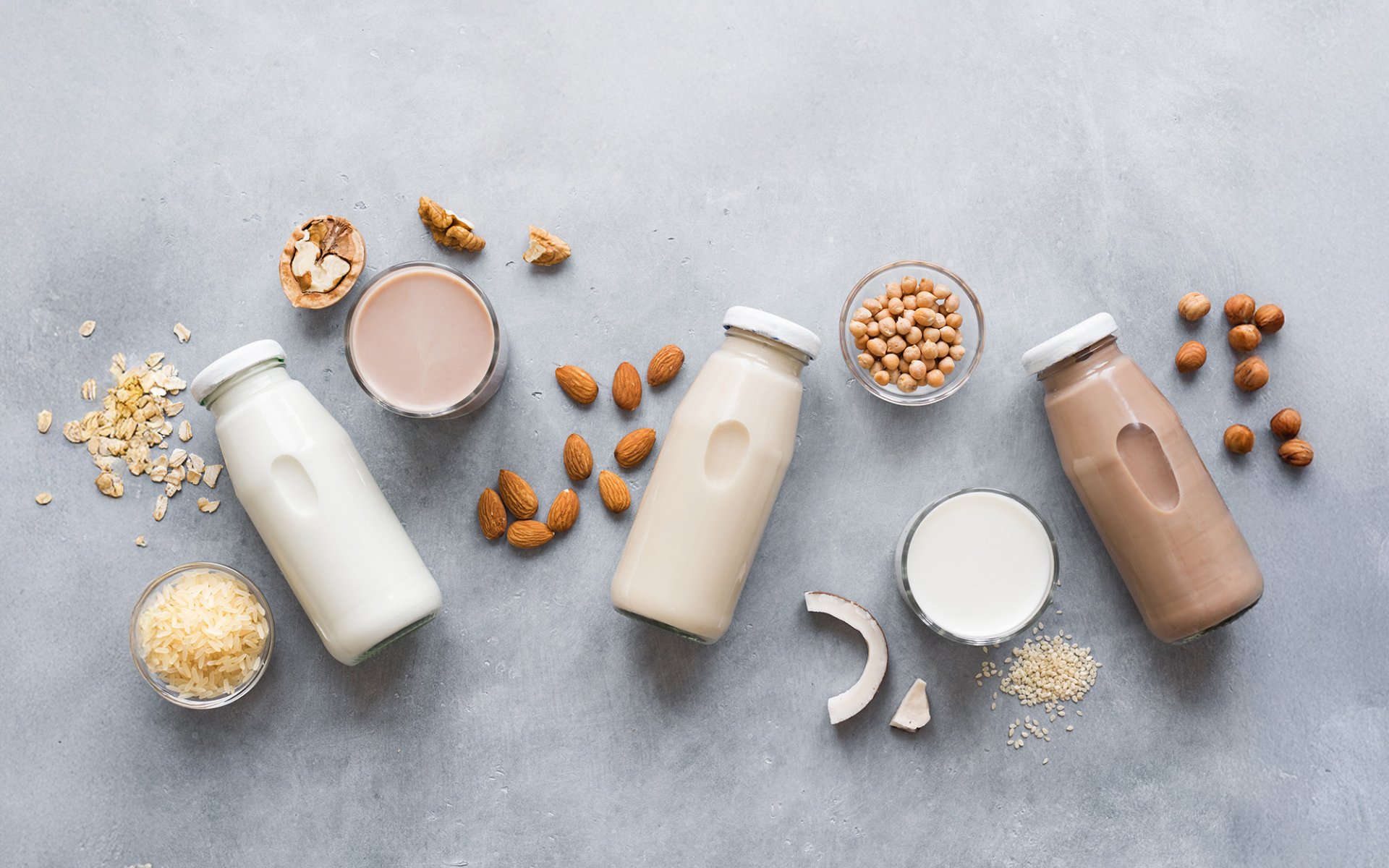Plant-Based Milk

While plant-based milk has been consumed for centuries across various cultures, it has recently experienced a significant surge in popularity. This increasing demand is driven by several factors, including health concerns, environmental awareness, animal welfare, and the growing number of vegan consumers.
Origins and Historical Consumption
Plant-based milk is an alternative to dairy milk, produced from plants such as almonds, coconut, oats, rice, quinoa, soy, as well as various other grains and nuts. People have been familiar with plant-based milk for hundreds of years. For example, the Wabanaki indigenous people in northeastern America often made nut milk for infants, while people in India and Southeast Asia used coconut milk in cooking. The use of soy milk in Chinese culture was also discovered as early as 1365.
Reasons for the Popularity of Plant-Based Milk
1. Health Benefits
In recent years, plant-based milk has gained increasing attention from health-conscious consumers for several reasons. Plant-based milks generally have lower saturated fat and cholesterol than dairy milk. For instance, almond milk is low in calories and cholesterol-free, while soy milk is rich in protein and essential amino acids. Additionally, plant-based milks are often fortified with essential nutrients like calcium, Vitamin D, and B vitamins, further enhancing their nutritional value.
2. Alternative for Lactose Intolerant Individuals
Plant-based milk also offers benefits for individuals with lactose intolerance. These consumers cannot digest lactose in dairy milk because their digestive system doesn't produce enough lactase enzyme, leading to symptoms like bloating, diarrhea, and stomach discomfort after consuming dairy milk. Therefore, these consumers turn to plant-based milk as a viable alternative.
3. Environmental Sustainability
Environmental sustainability is another factor driving the shift towards plant-based milk. Livestock farming contributes significantly to greenhouse gas emissions and uses three times more water resources than agriculture. In contrast, plant-based milk production results in lower greenhouse gas emissions and requires fewer resources.
4. Animal Welfare Concerns
Concerns about animal welfare have led many consumers to seek alternatives to dairy products. The dairy industry is often criticized for practices such as calf separation, confinement, and routine use of antibiotics and hormones.
Diversity and the Future of Plant-Based Milk
Furthermore, plant-based milk offers a wide variety of options because it can be produced from many different plants, each providing distinct nutritional benefits in terms of protein, carbohydrate, fat, and natural sugar content. For example:
Soy milk is a good source of protein and is the only plant-based milk with a natural protein content comparable to cow's milk.
Almond milk is low in calories, making it suitable for those managing their weight.
Cashew milk contains unsaturated fats, making it a good choice for individuals with high cholesterol levels or those aiming to control fat intake.
Oat milk is a good source of fiber, containing beta-glucans that help stimulate white blood cell function.
Today, the consumption of plant-based milk continues to grow and expand rapidly. According to research by Global Market Insights in 2019, the plant-based milk market was valued at over 12 billion USD and is projected to grow at a compound annual growth rate (CAGR) of 11% between 2020 and 2026. This clearly indicates that plant-based milk plays a crucial role as the milk of the future.


